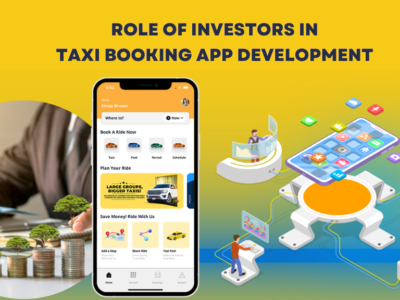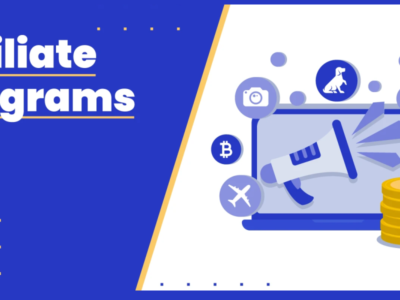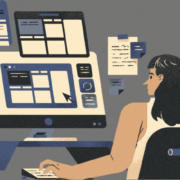How I moved from being an introverted programmer to an entrepreneur
Although one of the most common transitions, becoming an entrepreneur after spending years as a programmer is arguably one of the hardest to comprehend.
Thank you for reading this post, don't forget to subscribe!
Why? Let’s look at the common traits of a programmer:
- Loves solving problems
- Passionate about our interests: TV shows, video games, role-playing games, etc.
- Sees a task or challenge though as it’s a personal defeat if we fail
- Can quickly become impatient with ‘dumb’ people (those who don’t understand programming – often clients!)
- Prefer online communication to face-to-face
Now, before you brandish the pitchforks at my Twitter account (@Derry_Holt), consider that this is your ‘introverted’ programmer. I’m no stranger to the varying types of coder you come across we’re all unique in our own way after all, but these are the people you’re more likely to come across in any tech team.
Some elements (problem-solving, tenacity) are great in entrepreneurship, the rest? Not so much!
Yet we see these types of developers succeeding in business all the time: Mark Zuckerberg, Bill Gates and Sergey Brin being the shining examples. They’ve all been a part of some of the largest corporations in existence and there are many others treading the path they walked many years ago myself included. I can’t speak for these individuals and the countless others around the world, but I can share some of my own experiences of this wonderful rollercoaster ride we all call entrepreneurship.
Launching Stormburst Studios
Roughly three years ago my business partner James Heath and I were chatting to a few friends at university. Given we were studying computer games programming it only makes sense that we’d either be talking about playing games or building them – in this case, which ones we wanted to work on post-university.
Trending
“I want to work on Grand Theft Auto.”
“It’d be awesome to work on the next Assassin’s Creed.”
“I’d prefer a smaller studio, I think.”
“I think I’d like to give it a go alone”.
The latter of these responses came from James and me, an unlikely duo gave our contrasting attitudes to life in the first year of university. But very quickly from that discussion, we unified with one common goal – to build amazing games that people loved.
Fast forward to a couple of years later and, well, we aren’t building games like we once dreamed. And, I’m not a developer anymore. What went wrong? I became the CEO.
We joined the Entrepreneurial Spark accelerator program in August 2015 and one of us had to become the entrepreneurial leader. I voluntarily drew the short straw and began my transition from techy to the leader of Stormburst Studios.
As the name implies, Stormburst Studios was a games development studio – now we’re a gamified enterprise technologies developer. It doesn’t sound particularly sexy, but marketing is one of many things I have yet to get right! Essentially we draw on our experiences in the video games industry and apply what we know about effective game design to make workplace software more fun and engaging.
What makes transitioning from programmer to CEO difficult?
I learned a lot in the early days of building our startup:
- How thrilling it is to get new ideas every five minutes is (and how exhausting it is too)
- How much I hated approaching prospects to validate our ideas
- How much I hated speaking to groups of people
- How much I hated pitching (see above)
- How much I hated being solely responsible for the business’ success
- How much I fell back to coding to hide away from the ‘new and scary’ tasks
A lot of these were in relation to the ‘introverted programmer’ I described earlier. I’m by no means a quiet fellow, but all this meant was that the traits were suppressed behind an outgoing personality. So what happened? I persevered. I mentioned earlier that tenacity is a common trait it paid dividends in this context.
After a few weeks of wanting to run away from it all, I began throwing myself head-first into a number of things, which helped build these skill sets.
1) Volunteering to do pitch events
My first pitch at Espark came about when I arrived a couple of minutes late to boot camp. Out of breath and with a half-baked pitch in my mind, it fell to pieces. Forgetting to breathe, forgetting words, stressing myself out – it was absolutely horrible.
But week by week I began refining my pitch and growing confidence in delivering information to an audience. In November 2015, I pitched to 500 people at a black-tie final for the opportunity to win £20,000 from Baldwins Accountants. Sadly we didn’t win but it was an incredible experience and we got our first client out of it – worth it I’d say!
2) Asking sales-savvy folk for advice
If you can’t do it yourself, ask someone that can. The great thing about communities like Entrepreneurial Spark is that there is a ridiculous amount of collective wisdom in one room. One entrepreneur had read nigh on every book there was to read about selling. I grabbed him for 30 minutes, asked him for some pointers and in my second call after formulating a strategy we had a meeting booked. The worst someone can say is no – just ask!
As a quick side note, our chairman came about in the same way. We were pitching to a client and explained our situation regarding investment and the like. I simply asked: “We’re also looking for a chairman, someone with experience in sales or B2B tech – do you know anyone?” Turned out he had two fantastic contacts, one who is now our chairman. I can’t stress it enough, the worst they can say is no – just ask.
3) Taking ownership of the responsibility
I used to view some responsibilities as a game of hot potato – get rid of it! Being responsible for staying within the law, keeping staff happy, paying them on time, managing client expectations; it can all get quite overbearing. But in the end, I had to suck it up and just get on with it. After all, the business wasn’t going to make a success of itself.
I began speaking to mentors and advisors to learn as much about effective management as I could. Today it’s (mostly) second nature managing the smaller stuff – I think the pressure for the larger stuff will never completely disappear!
Closing thoughts
From all of the above, week by week I began to see an improvement in my mindset. I still speak far too fast for most people and trip on my words, but when it counts I know I can be depended on.
I’ve had to pitch to clients in person, cold call and lead teams, and I do all of these things with as much conviction and self-belief as possible. Without any self-confidence, you’re only holding yourself down, so I believe that’s a key factor in becoming an entrepreneur.
I’ve included several quotes in this article, but one stands above them all for the introverted developer is “fake it ’til you make it”. Rome wasn’t built in a day and none of us will become miracle-working CEOs in a day, week or year. Don’t be afraid to try something crazy and be even less afraid of the outcomes.
Content originally Write By – Derry Holt Founder and director Storm burst StudiosShare this content










